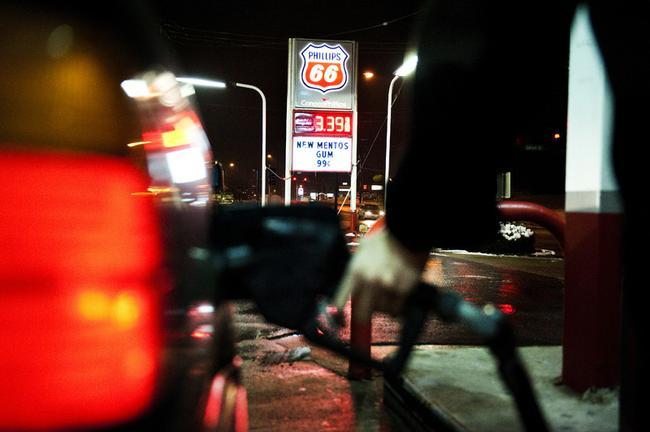
As gasoline prices climb, students are getting creative to avoid paying as much and as frequently as they once did, according to a survey of 170 students on campus.
Of the students randomly surveyed by The Maneater in the MU Student Center commons area Monday, 95 students said they had changed their habits since the price of a gallon of gasoline, now at $3.39, reached $3.
Of the 95 students who changed their habits, approximately 64 percent said they were driving less by making fewer trips and approximately 30 percent said they were biking or walking more often.
“I’ve definitely had to change my habits,” sophomore Abel Gereme said. “I tended to drive to campus almost every other day, but now I always ride the bus. Every time I go out, I probably spend like $10 to $15 more than before.”
As gas prices continue to rise, legislators in the House and Senate are approaching a solution in very different ways. Sen. Roy Blunt, R-Mo., proposed an amendment to the Clean Air Act last week to reduce the number of “boutique fuels” during periods of short supply.
Boutique fuels are fuels which emit less harmful vapors into the atmosphere in order to combat ozone pollution, especially in the summertime. The Gas Accessibility and Stabilization Act would allow lawmakers to waive boutique fuel requirements temporarily during gasoline price spikes.
“Gas prices are skyrocketing while families and job creators nationwide are paying the price,” Blunt said in a news release. “By allowing for a reduction in the number of approved boutique fuels and providing communities with more response flexibility during times of temporary shortage, the GAS Act will help drive down costs for households and small business owners who are struggling to make ends meet.”
House Democrats took another approach to America’s energy crisis. The End Big Oil Tax Subsidies Act of 2011, proposed by Rep. Earl Blumenauer, D-Or., was cosponsored by 30 Democrats, though none from Missouri.
The act was voted down by House Republicans two weeks ago, a move which Blumenauer condemns as telling of America’s backward energy policies.
“On the same day that Federal Reserve Chairman Ben Bernanke told Congress that our dependence on oil threatens our economy, every single House Republican voted to continue billions of dollars in subsidies for the largest oil companies,” Blumenauer said in a news release.
The Act would have amended the Internal Revenue Code of 1986 to repeal fossil fuel subsidies for large oil companies which come to just under $40 billion.
Professor of economics X. H. Wang says there’s a reason politicians are weary of voting for legislation to end oil subsidies, as it would increase the price of oil.
“If they don’t get the subsidies, their costs will be higher so they will pass some of that to consumers,” Wang said.
But Wang also said rising prices would likely curb American’s appetite for oil and push the country toward more renewable energy sources.
“If input costs for oil become more expensive, then people will try to use substitutes for oil,” Wang said. “To what degree, though, I don’t know, but there will be some substitution and some of them will use green technology.”